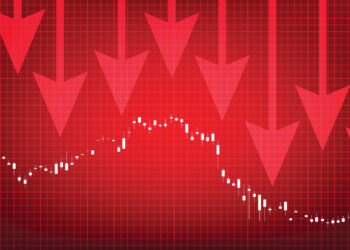The Nigerian Stock Market closed the month of June down 3.12% as investors clawed back profits after two successive bullish months. Stocks reversed a disastrous March (-18.75%) to gain 8.08% and 9.76% for April and May respectively.
Global stocks had outstanding returns in major markets in Q2 2020, triggered by America’s biggest economy, as major Wall Street stocks recorded their best quarter in more than 20 years, boosted by monetary policyholders’ stimulus packages at enormous levels.
The S&P 500 index gained more than 20% in Q2 2020, printing the largest gain since the final quarter of 1998. Emerged and emerging market stock prices overall also gained about 17% in the second quarter, according to MSCI’s All-Country World index.
Bearish June – The stock market staged a remarkable comeback in April and May just as Nigerians grappled with an economic shutdown caused by the COVID-19 pandemic. The Federal Government had in late March shut down economic activities, closed borders, and imposed curfews in Lagos, Abuja, and key states in a bid to contain the spread of the pandemic. Whilst economic activities stood at a standstill, investors pounced on cheap stocks beaten down by the March mega sell-offs.
In June, the market sustained several mixed trading sessions with bulls and bears switching positions. However, stocks will eventually close the month in the negative snapping two months of positive gains. In terms of year to date returns, Nigerian stocks are down 8.8% for the year a sharp reversal from the 5.86% gains recorded in May but still better than the 20.65% year to date return recorded in March, capping a disastrous first quarter of the year.
Broken Economy – The Nigerian Economy is projected to get into a recession this year as the effects of the lockdown take its toll on the economy. The government faces a revenue crisis as debt service to revenue ratio hit 99% in the first quarter of the year. The government has earmarked a N2.3 trillion stimulus package which it hopes will jump-start the economy and cushion the effect of the impending recession.
While the government deals with fiscal challenges, macro-economic issues persist with the CBN battling multiple interest rates and exchange rates respectively. For example, treasury bills, FGN bonds, and risk-free securities are trading at sub 5%. Conversely, the inflation rate rages on above 12% while lending rates remain sturdy at 21% compared to saving deposit rates at sub-2%. On the other hand, forex rates at the black market averages N460/$1 compared to the NAFEX at N388/$1. However, the official rate used for government revenue conversions remains at N360/$1 stoking pressure from the World Bank and institutional investors for a unification of the Naira.
Outlook for Stocks – With the dark clouds hanging over the economy, investors have their gaze on stocks anticipating the earnings results which are due in a few weeks. Most investors anticipate weak earnings this quarter considering the lockdown and its ensuing consequence on the economy. Nairametrics expects earnings to be poor across sectors of the economy further depressing interest in the stock market.
Most of the major companies trading on the stock exchange operate in industries that are not COVID-19 proof. From consumer goods to financial services, oil and gas, and Industrials, Nairametrics research expects the impact to be severe. Guinness Nigeria Plc, on Wednesday, informed the public in a statement to the Nigerian Stock Exchange, about the material circumstances that will impact its full-year financial results for 2020. According to the company, the adverse impact of the sharp contraction in economic activities and the knock-on effect of the COVID-19 lockdown took a toll on the on-trade segment of the business across all our markets. Production and revenues have thus been negatively affected. Nairametrics expects more companies to report similar guidance.
Foreign investors also appear to be playing a waiting game as they await CBN action on the expected unification of the naira. Data from the CBN reveals portfolio investments into Nigeria was just $67.9 million for the month of April 2020, the lowest inflow recorded this year. FPI sharply reversed from $2.30 billion at the beginning of the year (January) to just $67.9 million inflow in April 2020. Nigeria, like most emerging markets, relies heavily on foreign portfolio investments to shore up its external reserves and manage its exchange rate position.
Nigerian Stock market closed on Wednesday on a bullish note, as the all-share index gained 0.47% to close at 24,595 basis points as against 1.53% depreciation recorded previously. Its Year-to-Date (YTD) returns currently stands at -8.37%. Nigerian bourse market capitalization stood at N12.83 billion.
Market turnover closes negative as volume moved down by -29.45% as against +76.83%, the upside recorded in the previous session. WAPIC, UPDCREIT, and UBA were the most active to boost market turnover. GUARANTY and UBA topped market value list.




















